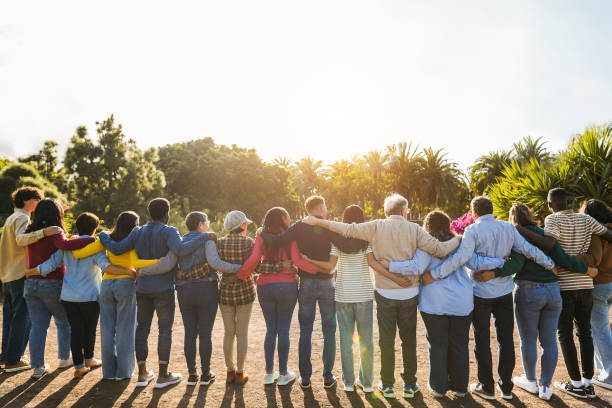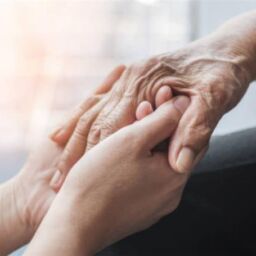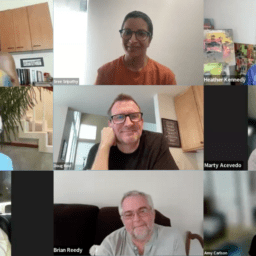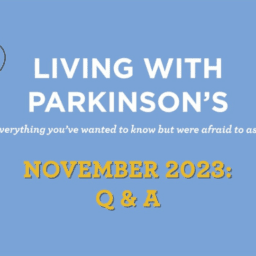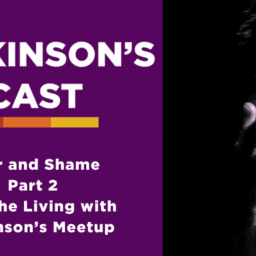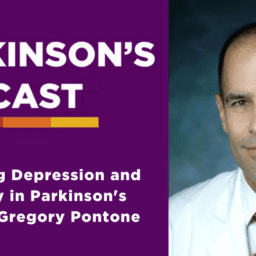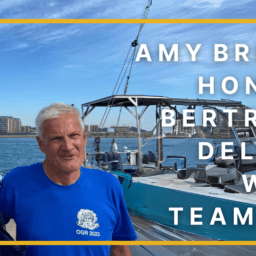Parkinson’s can make your world seem small. It can make it hard to get out to do the things you like to do. It can make it hard to talk about the things you like to talk about. It can make it tough to stay active. Conversely, Parkinson’s can also make your world seem big. Your symptoms may unpredictably change, which is just one reason the future can seem uncertain or even scary.
These are just a few of the reasons to connect with a support group. Many people with Parkinson’s find it helpful to talk with people who have the shared experience of navigating the challenges and peculiarities of Parkinson’s.
Still, support groups may not be enough to counteract the social isolation that Parkinson’s brings. Support groups may focus on difficulties or attract people expressing hopelessness. Supporting each other in these moments is critical, but this situation isn’t always the most appealing way to spend your time.
DON’T ISOLATE: CONNECT THROUGH SHARED INTERESTS
One way to work against the headwinds that sometimes make support groups challenging is to supercharge the social connection of the support group by finding shared interests besides Parkinson’s. Try to get to know what people in your group loved to do before their Parkinson’s diagnosis and what new things came into their lives since their diagnosis. While not everyone will want to share, you may develop a stronger connection with those who do share more about their life besides Parkinson’s.
Of course, this may already be a part of your support group’s experience, and your connection to your group’s members may be very strong. However, if you don’t have a support group or want a different experience, there is an alternative: Start your own group of people with Parkinson’s who have a shared interest.
Maybe this means going to baseball games or theater performances together, or maybe it means having a table at a farmers’ market to sell handmade crafts. Maybe it’s something else entirely. The point is having more than just Parkinson’s in common can be helpful in keeping your social support network fresh and engaging. Note, too, that you can start a remote social group with other people with Parkinson’s if you are willing to connect with people online or by phone.
The idea of helping people connect with other people with Parkinson’s is part of what inspires our Ambassador and Healthy Parkinson’s Communities™ programs. Through these programs, you can connect to leaders living with Parkinson’s who can help spark connections with other people who share your interests. This helps you live well today by staying engaged with what you love while connecting with people who share your Parkinson’s experience.
EXERCISE GROUPS AND OTHER LOCAL RESOURCES
Helping people with Parkinson’s connect based on shared interests is also part of what we love about our Pedaling for Parkinson’s™ program.
Exercise-based groups may not involve the same challenges as discussion-based or conventional support groups because of the benefits gained from exercise–including possible improvement in motor and non-motor symptoms. Joining a Pedaling for Parkinson’s class or another exercise class for people with Parkinson’s is a great way to stay engaged and work against the pressures of your diagnosis.
In addition to Pedaling for Parkinson’s, we’ve heard from many people that their Rock Steady Boxing class has become like a support group for them. Glenn, who lives in Southern Oregon and was diagnosed with Parkinson’s in 2018, is one example. Glenn says:
Shortly after I was diagnosed, I went to a local support group meeting. All I heard were complaints, and I was made aware of many of the more difficult parts of Parkinson’s. In that support group, people with Parkinson’s and their care partners seemed to come to voice their frustrations, and few people offered constructive ideas.
Since then, my wife and I retired and moved. I’ve joined a boxing gym here that does Rock Steady Boxing for people with Parkinson’s. Since I started working out with my peers with Parkinson’s, I find that we help keep each other’s spirits up. We are all working through similar challenges, and we are doing it with a positive attitude. Our group continues to grow all the time: We’re over 30 people strong!
This group has proven to me that if you want to improve your condition you can. To achieve this, you must keep a positive outlook, even when things look bleak. Seek out and surround yourself with people that desire the same!
We’ve also recently heard from a group of people with Parkinson’s who met as a part of study exploring pickleball and Parkinson’s run by a physical therapy clinic and a group of physical therapy doctoral students. Since the study ended, members of this group have continued to meet to play pickleball and support one another. They’ve also started sharing meals and other activities together. One of the participants, Jerry, says:
When I was diagnosed with Parkinson’s in November of 2023, I was at a loss and needed to learn as much as possible about Parkinson’s. Pickleball for Parkinson’s [study name] was the answer. Eight weeks of working together to learn the game turned into a bond not only to continue playing, but to help each other deal with the challenges Parkinson’s presents. We share experiences, contacts, and support [that] has been invaluable to both my wife and to me.
Another participant in the Pickleball for Parkinson’s study, Marge, says:
Our group has become a group of friends who play pickleball weekly, have social get-togethers, and share information about our Parkinson’s experiences. It’s really helped me let go of the stigma of the diagnosis and to realize that we can live a normal life even while dealing challenges of Parkinson’s. Last week, I attended a Parkinson’s-themed luncheon and several of my pickleball buddies were there. It was so nice to see people I knew and to feel like I was part of the group! I feel very grateful to now have my foot in the door of the Parkinson’s community, and never dreamed that pickleball would be my entry point.
Even if you don’t have an active exercise group in your local area, there are often resources to help you start one. Local physical therapy offices are a great place to start. They may know of people in the area who are living with Parkinson’s or other related conditions and may be able to help connect you with other people who have shared interests. Who knows—the doctors, therapists, or staff might even offer to help run the group to provide some expertise, guidance, or other resources!
PARKINSON’S IS HARD: STAY CONNECTED TO SUPPORT
One way or another—no matter how you do it—while living with Parkinson’s, it’s crucial to navigate the disease with a supportive community.
Maintain connection to people who have similar interests, whether they have Parkinson’s or not. Parkinson’s doesn’t have to take over all aspects of your life, even though it might touch all parts of your life.
If you’d like to connect with other people with Parkinson’s who have similar interests to you, consider reaching out to your nearest Healthy Parkinson’s Community leader or to a Davis Phinney Foundation Ambassador. If you need help determining out who to reach out to, contact our Community Engagement team or email us at blog@dpf.org. You can also connect with a group of people with Parkinson’s through our monthly Living with Parkinson’s Meetups.
ADDITIONAL RESOURCES
How to Reduce Social Isolation while Living with Parkinson’s


